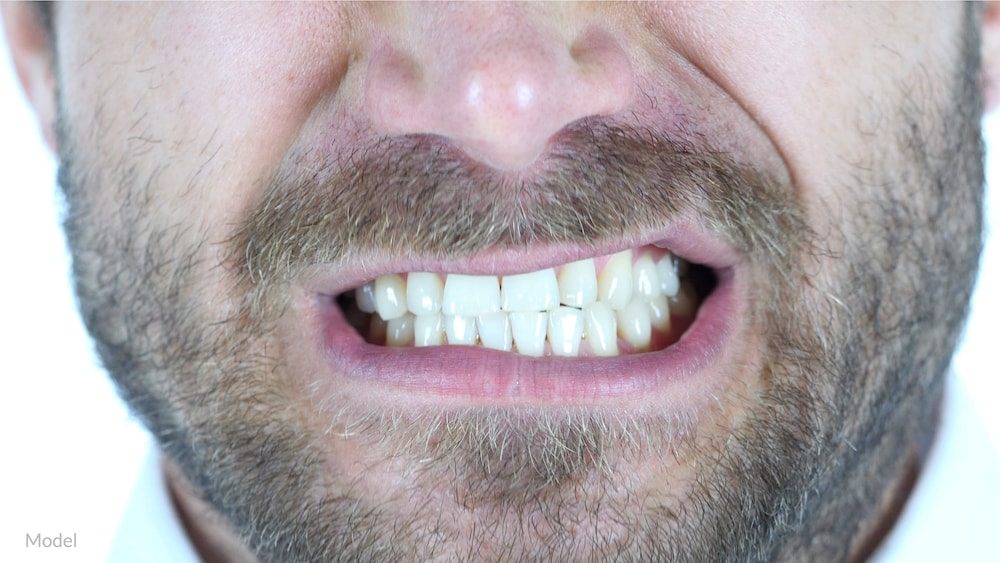Are You a Teeth Grinder?
2 Minute Read:
Sometimes, all we can do is grit our teeth and plow through. However, doing this too often can lead to sleep disruption, facial pain, and dental damage.

Here’s how to tell if you are a teeth grinder and how to protect your mouth from this insidious habit.
What Is Teeth Grinding?
Teeth grinding, called bruxism, is the jaw’s clenching in such a way that causes the upper and lower teeth to rub against each other. While some people grind their teeth during the day (often when they are stressed), most people grind their teeth as they sleep. It is estimated that one in three people grind their teeth chronically without realizing it until symptoms develop.
What Causes Teeth Grinding?
The specific causes of teeth grinding are unknown; however, stress and anxiety are common culprits.
Additional causes may include:
- An abnormal bite
- Crooked or missing teeth
- Tobacco and alcohol use
- Caffeine consumption
- Certain medications
- Genetics
What Are Common Symptoms of Teeth Grinding?
Since teeth grinding often occurs while you are sleeping, you may not always catch yourself in the act. However, some telltale symptoms include:
- Tooth sensitivity due to exposure of dentin
- Loose or fractured teeth
- Earaches
- Jaw soreness due to popping of the temporomandibular joint (TMJ)
- Tongue indentations
- Dull headaches
- Flat tips of teeth
What Complications Might Arise From Teeth Grinding?
Chronic bruxism exerts pressure on facial bones, muscles, and nerves, causing irritation and sensitivity. The jaw’s range of motion can be diminished, making chewing or even talking difficult. In some cases, people develop tori, bony outgrowths in the jaw bone.
What Kind of Damage Can Grinding My Teeth Do?
In addition to the above symptoms, grinding your teeth can result in significant dental damage, such as tooth fracture, chipping, and even eventual loss. This damage can occur to your natural teeth or even costly dental implants and require additional procedures to correct.
How Can I Reduce or Stop Grinding My Teeth?
Your dentist or periodontist can teach you how to rest your tongue, lips, and teeth correctly to help reduce the severity of grinding. They can also fit you with a plastic mouth guard (night guard) to absorb involuntary stress on teeth at night.
In addition to a mouth guard, jaw exercises, massages, and relaxation techniques can help relax the jaw muscles, reduce stress, and break the bruxism habit.
Interested in Learning More?
If teeth grinding is an issue for you or your loved one, get the help you need to save your teeth. Contact Dr. Afshin Salamati, DDS, MS, to set up a consultation by calling (310) 275-1090 or by filling out our online contact form.
